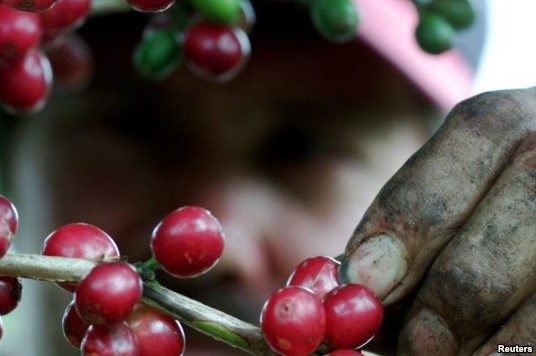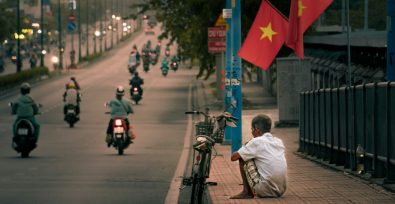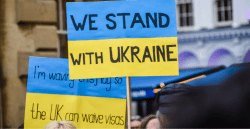Thought there are Brazilian efforts to reduce slavery on coffee plantations, the poor are still lured onto the farms with promises of good pay. Then they find themselves in debt bondage and living in deplorable conditions…
Some advocacy groups say the government has tried several initiatives, like putting public shame on those employers. Brazil is South America’s biggest country.
Michael Sheridan, director of the ‘Coffeelands Program’ of Catholic Relief Services explained: South America’s largest country has made significant improvements in tackling forced labor in agriculture, with the Ministry of Labor publishing a “dirty list” of employers benefiting from modern slavery.
Sheridan said that according to government data there have been 15 farms flagged by authorities. Some have armed guards to keep workers inside and workers, in some case, must work with toxic chemicals without proper protective coverings. But he notes that “Brazil is ahead of the curve when it comes to tackling slavery in supply chains. There are some flaws in their [monitoring] programs, but Brazil is positioning its coffee companies to deliver the kind of transparency customers are demanding.”
Nearly 400 workers have been rescued from slave-like conditions in those coffee plantations since 2002.
As the world’s largest coffee producer, conditions on farms in Brazil face scrutiny from large, multinational firms and consumers around the world. Two of the world’s largest coffee firms, Nestle and Jacobs Douwe Egberts, admitted last month that Brazilian beans produced using slave labor may have ended up in their coffee, following reports from rights groups.
Nestle said, “Unfortunately, forced labor is an endemic problem in Brazil and no company sourcing coffee and other ingredients from the country can fully guarantee that it has completely removed forced labor practices or human rights abuses from its supply chain.”
To read the entire article, click the link below.







Freedom United is interested in hearing from our community and welcomes relevant, informed comments, advice, and insights that advance the conversation around our campaigns and advocacy. We value inclusivity and respect within our community. To be approved, your comments should be civil.